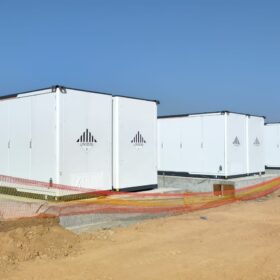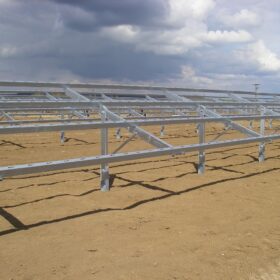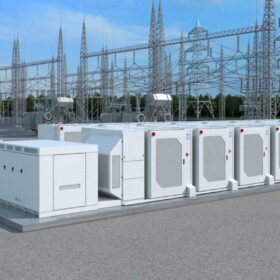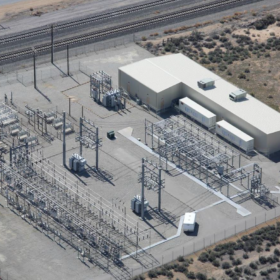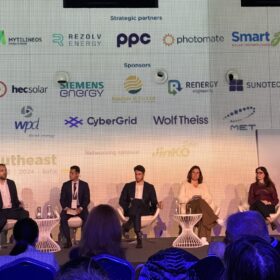Greece, EU set up €1.6 billion fund for island decarbonization
The Greek government, the European Commission, and the European Investment Bank (EIB) have launched the Islands Decarbonisation Fund. They have initially secured €1.6 billion ($1.7 billion) to finance decarbonization projects across the Greek islands.
Greece adds 1.5 GW of new solar in January-September period
The Hellenic Association of Photovoltaic Companies (Helapco) says new figures reveal that Greece’s solar sector is growing faster than expected and could reach the nation’s 2030 target of 13.5 GW by 2026. By the end of the year, its cumulative PV capacity could exceed 9.2 GW.
Greece announces downsized auction for battery storage in coal regions
The Greek government decided to auction 100 MW less capacity than initially sought and to offer more money to the awarded projects than expected.
Greek PV group urges halt to large-scale solar licenses amid curtailment
The Hellenic Association of Photovoltaic Energy Producers (Spef) is pushing the Greek government to stop issuing new grid connection licenses for renewable energy systems to address the nation’s escalating power curtailment issue.
Greece readies for next battery storage growth phase
Greece’s energy storage market is hot with a number of new policies paving the way to new applications in the market. The government is now working a new plan, which will allow the colocation of batteries with existing solar plants as well as standalone, in front of the meter battery energy storage systems.
Bulgaria’s battery storage market gears up
Bulgaria has installed between 40 MWh and 50 MWh battery energy storage capacity to date. However, a new national legislation as well as funds provided through the European Union’s Recovery and Resilience Facility could see the country install another 1 GWh over the next two years.
Masdar buys out Greece’s Terna Energy in €3.2 billion deal
Masdar has agreed to acquire initially 67% of Greece’s Terna Energy, a developer of clean energy infrastructure, in a €3.2 billion ($3.4 billion) deal.
Greece shuns net metering
A recent law voted by Greece’s Parliament has closed the net metering scheme to the vast majority of electricity users. The government aims to replace it with a net billing scheme, which the photovoltaic sector has been waiting for more than a year.
Greece adds storage to solar tenders
The Greek parliament has approved a new law introducing renewable energy policies for auction design and small projects with stable feed-in tariffs.
Key takeaways from Bulgaria’s RE-Source Southeast Conference
The first day of the RE-Source Southeast Conference in Sofia, Bulgaria, this week underscored European and regional interest in renewable-energy projects based on corporate power purchase agreements (PPAs). Negative or very low electricity prices in European electricity markets affect the appetite for such projects, but the solution for investors and policymakers is to approach the issue systematically.


